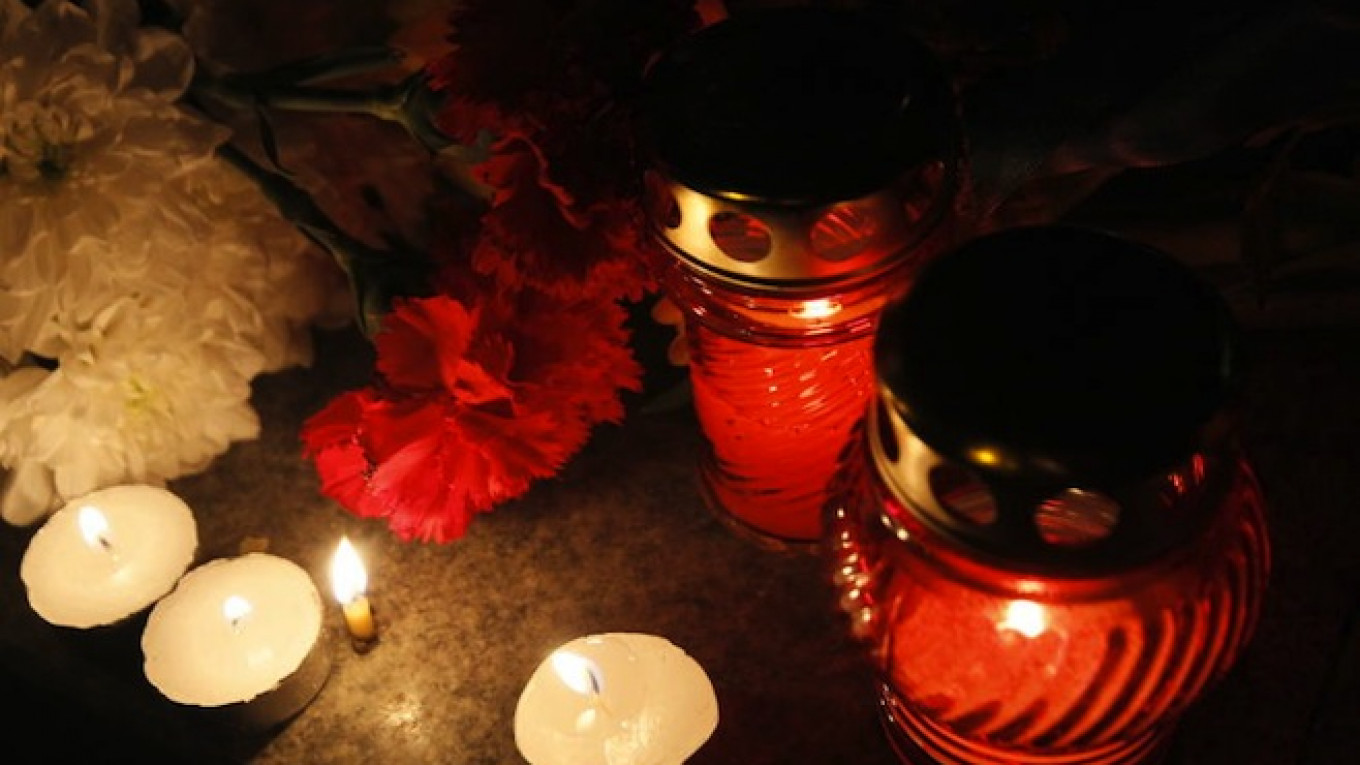An Internet database of people who fell victim to the Soviet regime has been launched as Russia prepares to mark the Day of Remembrance of Victims of Political Repression, the project's editor Andrei Shalayev told The Moscow Times on Thursday.
Shalayev was inspired to start the project, titled Immortal Barracks, by a similar initiative earlier this year called Immortal Regiment. The latter was an event in which people marched with photos of their relatives or other loved ones killed in World War II, held to mark the 70th anniversary of the Allied victory over Nazi Germany.
“It [the number of people killed in the war] is about 27 million people. I think the number of people who died during the repressions or of hunger during industrialization is no less, but they are not remembered, and it's not fair,” said Shalayev.
The project editor's great-grandfather was a priest who was killed during the repression era, but he said it was far more than a personal quest.
“I want people to learn about the crimes of communism and stop rehabilitating it,” said Shalayev, 27.
Polls in recent years have shown a softening in public opinion to Soviet dictator Josef Stalin and the Soviet system amid a surge of top-down patriotism.
Millions of people were summarily executed or sent to the Gulag labor camps as a result of political repression in the Soviet Union, which reached its peak in the arbitrary arrests, killings and imprisonments of the late 1930s under leader Josef Stalin.
The exact number of people killed is still unknown, as many documents from the repression period remain classified. Many of those executed were later posthumously rehabilitated after Stalin's death in 1953.
The Internet site was launched Wednesday, but the project was begun back in May, when Shalayev and his IT specialist friends started a campaign on social networks asking people to send them information about their relatives who were killed or died in prison under Stalin.
In June he started a crowdfunding campaign and collected 300,000 rubles ($4,700) to build a website. There is still some money left, and people donate via the Internet, he told The Moscow Times. But the project will need more funding soon and Shalayev does not know where it will come from.
His plans include placing all the victims' information on a map with geotags and including information on any connections between them.
There are currently about 7,500 names in the database, of which about 1,000 have been published, Shalayev said, adding that he plans to put the rest of the data online by the end of the year.
Russia marks Day of Remembrance of Victims of Political Repression on Oct. 30. On the eve of the remembrance day, in keeping with the tradition of the last few years, volunteers lined up at Lubyanskaya Ploshchad — home of the dreaded KGB secret police headquarters, and of its successor, the FSB — to read out the names throughout the day of more than 40,000 people shot in Moscow alone in the late '30s.
Titled “Returning the Names,” the event has been organized by the Memorial human rights group since 2007 and is held in cities across Russia.
The city's Gulag Museum will mark the remembrance day with its official opening in its new home on 1st Samotechny Pereulok. The state-sponsored museum will open to the public the following day.
Contact the author at [email protected]
A Message from The Moscow Times:
Dear readers,
We are facing unprecedented challenges. Russia's Prosecutor General's Office has designated The Moscow Times as an "undesirable" organization, criminalizing our work and putting our staff at risk of prosecution. This follows our earlier unjust labeling as a "foreign agent."
These actions are direct attempts to silence independent journalism in Russia. The authorities claim our work "discredits the decisions of the Russian leadership." We see things differently: we strive to provide accurate, unbiased reporting on Russia.
We, the journalists of The Moscow Times, refuse to be silenced. But to continue our work, we need your help.
Your support, no matter how small, makes a world of difference. If you can, please support us monthly starting from just $2. It's quick to set up, and every contribution makes a significant impact.
By supporting The Moscow Times, you're defending open, independent journalism in the face of repression. Thank you for standing with us.
Remind me later.






